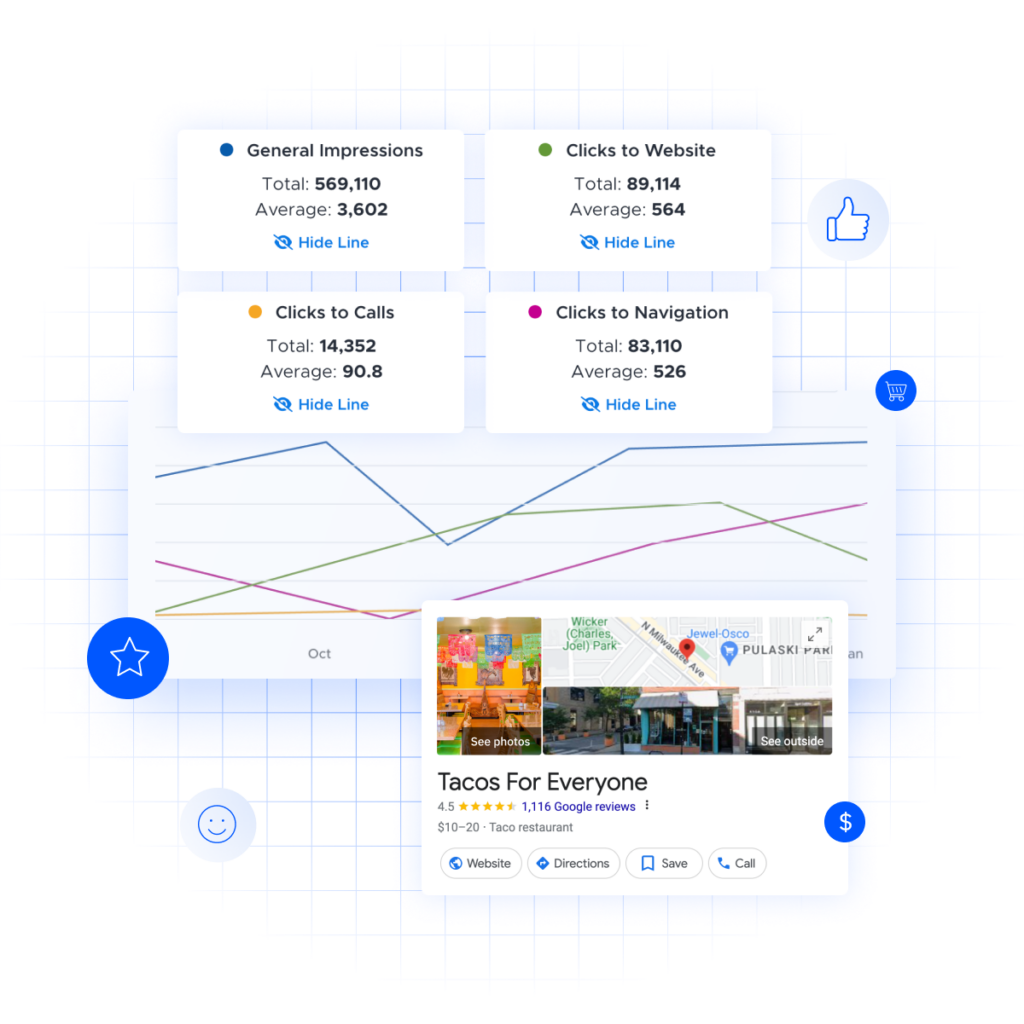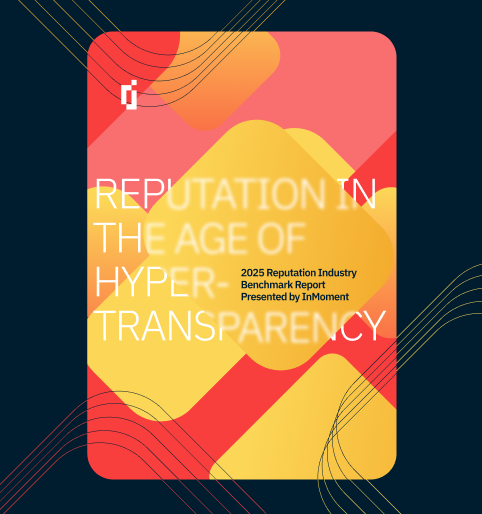Why Organizations Must Optimize Their Brand for Both People and Machines

In 2025, your reputation impacts your revenue more than ever before. The way customers find and choose brands has fundamentally changed. They’re no longer just scrolling through traditional search results—they’re asking ChatGPT, Google’s Gemini, and other AI tools for help. These tools respond with curated summaries based on everything they can find about your brand online.
Investing in local SEO is no longer enough to fuel your marketing funnel and drive customer acquisition. Today’s marketing leaders are paying close attention to Generative Search Optimization (GEO) and its growing role in the customer journey. Your brand must show up clearly and confidently—for both people and the machines they trust.
What Has Changed: Search Is Now Summarized
When someone asks an AI assistant to recommend a service or product, that tool scans a wide range of sources—your reviews, business listings, photos, and feedback engagement. It builds a snapshot of your brand and uses that to decide if you’re worth recommending.
Your first impression is no longer your website or your store—it’s how AI describes you. If that description is outdated or underwhelming, you’re invisible.
The Rise of Generative AI in Everyday Decisions
More people are relying on generative AI to make choices, not just search:
- 58% of consumers have used a generative AI platform to seek product or service recommendations—up from just 25% in 2023.
- Adobe reported a 1,300% increase in retail site visits driven by generative AI tools in Q4 2024.
- 41% of consumers said they would prefer a single AI assistant to search across all platforms for them.
- 70% of Gen Z shoppers say they trust AI-generated product suggestions as much as, or more than, traditional ads.
- 46% of consumers are more likely to consider a business that appears in AI-generated summaries, citing perceptions of modernity and trust.
These trends reflect a major behavioral shift. Customers no longer distinguish between a brand’s owned presence and what AI says about them—because that AI summary is the first impression.
Understanding Generative Engine Optimization (GEO) and Large Language Model Optimization (LLMO)
Generative Engine Optimization (GEO) is the strategic practice of ensuring your brand appears accurately and favorably in AI-generated results. Unlike traditional SEO that focuses on search engine ranking pages (SERPs), GEO prepares your brand to show up in AI assistants, voice search, and summarized recommendation engines. It involves optimizing brand presence, business listings, and structured content so AI systems can confidently cite your brand as a top result.
Large Language Model Optimization (LLMO) is closely related. It refers to shaping your content and digital footprint in ways that LLMs can understand, trust, and elevate. This includes using natural language that reflects customer intent, ensuring consistent and accurate metadata, and consistently generating fresh experience signals—like new reviews and photos.
For example, a retailer with regularly updated business listings, consistent review responses, and high sentiment scores is more likely to appear in a ChatGPT summary than one with outdated information—even if the latter ranks well in traditional web search.
How to Rank in AI Search
Generative AI platforms like ChatGPT don’t just scrape the web—they synthesize it. When someone asks, “What’s the best salon near me?” or “Where can I find reliable auto service?”, AI tools build a recommendation based on your entire digital footprint—not just your website or ad spend.
To be included in those recommendations, your brand needs to look credible, active, and consistent everywhere that matters. Here’s how to ensure you show up:
1. Review Freshness and Quality
AI values how recently people have talked about your business—and what they’ve said. A steady stream of current, descriptive reviews showcases what your business is good at and who it’s for. Feedback like “staff were helpful” or “great for families” gives LLMs meaningful context for summaries.
2. Response Activity
Silence signals neglect. Brands that reply to reviews—especially critical ones—within 24 to 48 hours demonstrate responsiveness, which LLMs associate with reliability and customer care. Fast, authentic engagement builds trust with both people and machines.
3. Listing Accuracy and Completeness
Your business details—hours, services, categories, and contact info—need to be consistent across platforms like Google, Yelp, Apple Maps, and Bing. Inconsistencies create doubt. Incomplete or mismatched data can result in your business being excluded from AI-generated recommendations.
4. Visual Presence
AI tools factor in your media footprint. Do you have recent photos of your location, team, or products? Do customers upload their own? These visual signals help AI confidently describe your business to others.
5. Third-Party Trust Signals
Beyond Google, AI looks for validation from other trusted sources. Positive mentions or reviews on niche directories, social platforms, and review aggregators reinforce that your reputation is authentic—not just self-proclaimed.
These aren’t just best practices—they’re essential ranking signals. Businesses must take them seriously if they want to grow in the new era of search.
In April 2025, ChatGPT introduced a new shopping assistant that helps users discover the right products and services based on their questions, preferences, and available data. ChatGPT will link directly to webpages where users can buy the products or services. If your business isn’t well-represented in that data, you’re excluded from the conversation before it even begins.
Real-World Impact
A nationwide retail chain partnered with InMoment to improve its visibility in AI results. After identifying gaps in listing accuracy and review freshness across its Midlands stores, the team launched a targeted initiative to update profiles and gather new feedback. Within three months, those locations saw a 23% lift in local search visibility and an 18% increase in foot traffic, demonstrating the connection between brand reputation and location visits.
Be the Brand AI Recommends
Generative AI isn’t replacing traditional search—it’s reshaping it. Your reputation is no longer something customers discover after clicking. It’s the reason they click in the first place.
InMoment helps brands turn their online reputation into a competitive advantage—ensuring you show up when it matters, whether a customer is asking a friend, searching Google, or consulting ChatGPT. In this new era of search, your reputation isn’t just influencing decisions. It’s making them.
Schedule a strategy session with one of our reputation management experts to discover how InMoment can help you lead in the age of AI-powered search.


